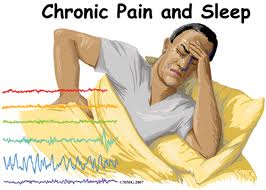Chronic pain can be an undermining force in people’s well being. Often it is more perceived as a nuisance or an inconvenience. How serious it really is as a health risk, has been emerging only in more recent observations.
Two well designed, population based studies in the UK are showing that there is an increased risk in people with chronic pain to die prematurely or to develop cancer.
In a study by J. Mc Farlane, MD individuals with chronic back pain or patients suffering of fibromyalgia show an increased risk for premature death and cancer. Often pain sufferers have not only one pain condition but also multiple ones. Mc Farlane quoted an excess risk of 30% for premature mortality in pain patients. At the same time he states that the risk is “relatively modest”. Another study noted that patients who suffered of widespread pain over a 10-year period had a 50% increased risk of developing cancer than those who were pain free at the baseline. Statistically it means that 2.5% of patients with widespread pain over a time of 10 years will develop cancer, which remains a small percentage.
The author notes that there is no reason to feel overly threatened by these results. More research will tell more. For the practical application the results point to the need for effective treatment and pain control before chronic pain patterns become detrimental to the patient’s health.
More information on:
Pain can affect many areas: http://nethealthbook.com/neurology-neurological-disease/pain/
Cancer risks: http://nethealthbook.com/cancer-overview/overview/epidemiology-cancer-origin-reason-cancer/
Reference: The Back Letter, December 2005,Vol.20, Nr.12, page 139
Comment on Nov. 11, 2012: Chronic pain can indicate that the patient may be hormone deficient. When hormones are tested, some patients may be hypothyroid, others may lack steroid hormones like testosterone, estrogen, progesterone or DHEA as is normal with the aging process. In these cases often restoration of the hormone balance with bio-identical hormones can treat the pain condition successfully and can prevent cancer by restoring normal immune function.
Last edited October 30, 2014






